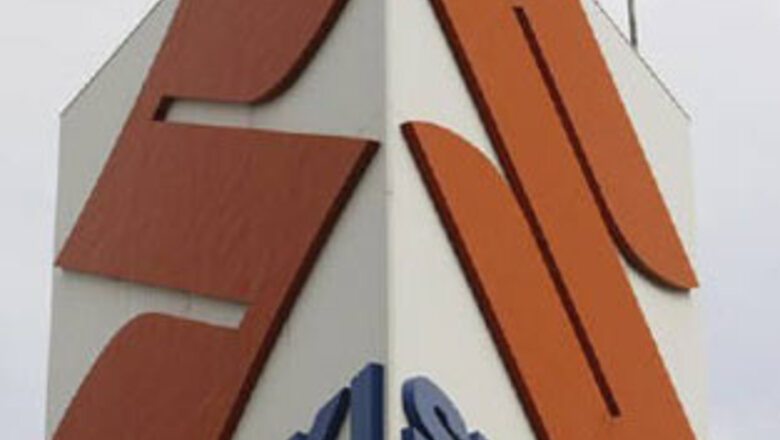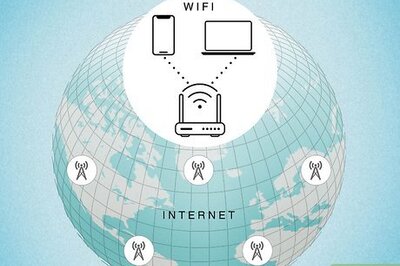
views
Tokyo: Japan's Suzuki Motor said on Wednesday it will sell a 19.9 per cent stake to Volkswagen for $2.5 billion and use half the proceeds to buy shares in the German automaker, as the two firms form a formidable force in the auto industry.
Shares in Suzuki bucked a sharp fall in other Japanese auto stocks to end up 3.5 per cent at 2,370 yen on Wednesday in Tokyo, a day after sources told Reuters of Volkswagen's impending stake purchase.
"Two of the world's leading carmakers are joining forces and preparing to meet the growing challenges that lie ahead," Volkswagen CEO Martin Winterkorn said in a statement. "Together we can maximise our opportunities for growth."
Winterkorn and Suzuki Chief Executive Osamu Suzuki will hold a news conference at 5 pm in Tokyo (0800 GMT).
Suzuki will allocate 19.9 per cent of itself to Volkswagen from its treasury stock.
Executives at Volkswagen, the world's third-largest automaker, have publicly said over the past half year that Suzuki would be an interesting target given its expertise in small cars -- a key segment to compete in emerging markets.
"Financially speaking, it's helpful for Suzuki to have a partner to invest in future technologies," said Chizuko Satsukawa, an autos analyst at Standard & Poor's.
News of the Volkswagen-Suzuki alliance comes days after PSA Peugeot Citroen and Mitsubishi Motors Corp said they were exploring deepening their ties, which have been limited to a project-based partnership so far.
Reports that the French carmaker could take a controlling stake in ailing Mitsubishi Motors have triggered the inevitable question of "who's next", as the industry faces fragile demand, chronic overcapacity and mounting pressure to join hands to tackle stricter environmental regulations.
Suzuki lost its equity ties to General Motors Co a year ago, having bought back the U.S. automaker's 20 percent stake in it, now worth about 257 billion yen ($2.9 billion).
Volkswagen, with its 10 brands including Audi, Skoda, Seat and now Porsche , has said it wanted to become the world's No.1 automaker by 2018 -- a goal it would reach with relative ease if Suzuki became a subsidiary.
In the first six months of 2009, Volkswagen sold 3.265 million vehicles and Suzuki sold 1.15 million. Their combined sales of 4.415 million units would be larger than top-ranked Toyota's 3.564 million.
In contrast to a potential pair-up between PSA and Mitsubishi Motors, which many regard as a union of the weak, Volkswagen and Suzuki are both regarded as being amongst the strongest automakers thanks to their big exposure to the fast-growing markets of China and India, respectively.
The other Franco-Japanese alliance, between Renault SA and Nissan Motor Co, is stepping up its push to achieve bigger synergies after 10 years of partnership, considered one of the few success stories in the industry.
"This (Volkswagen-Suzuki negotiations) comes right after the Mitsubishi Motors deal and shows that foreign carmakers are coming to take stakes in Japanese firms, raising expectations of a reorganisation in the autos sector," said Noritsugu Hirakawa, a strategist at Okasan Securities.
The bankruptcy of Chrysler this year was twinned with a link-up with Italy's Fiat SpA, while Chinese automakers are looking to buy into brands on sale from General Motors Co and Ford Motor Co.
Still, Suzuki's agreeing to join hands with Volkswagen comes as a surprise after its CEO had categorically denied any talks as recently as November.
Analysts said the move could benefit Suzuki by giving it cash and a partner to develop clean-car technology, where it lags, while giving Volkswagen a minicar platform, as well as a foothold in emerging markets such as India and Southeast Asia.
"It is probably a good move for both parties," said Koji Endo, an autos analyst at Advanced Research Japan.
Japan's Mazda Motor Corp has also come under some scrutiny given its diminished equity ties with Ford, whose stake has dropped to 11 percent from one-third.
But Mazda is fresh from raising about $1 billion in a share sale to fund the development of hybrid and other technologies, indicating that it could maintain the status quo.
Analysts are particularly upbeat about a new generation of fuel-efficient engines and transmission to be rolled out from 2011 as a cost-effective technology that could contribute immediately to Mazda's bottom line.




















Comments
0 comment